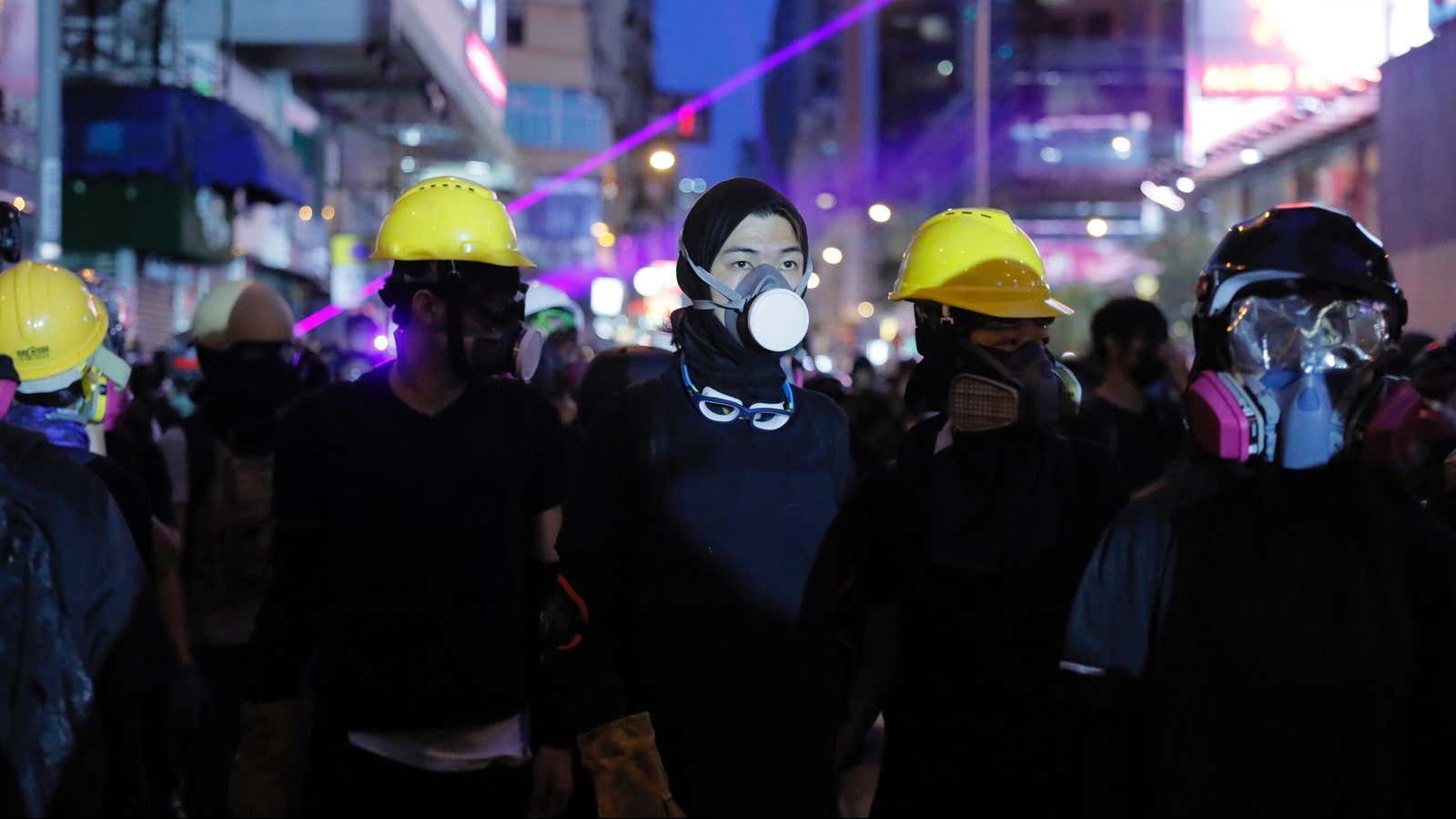This is the 11th consecutive weekend of protests in Hong Kong, and the protestors aren’t showing any signs of slowing down. In the biggest demonstration in weeks, tens of thousands of people turned out today (Aug. 18) with umbrellas, shutting down streets and flooding the city’s public transport system.
The situation seems on the verge of escalating. Though Beijing claims they are there for reasons other than a possible intervention, Chinese forces are positioned in Shenzhen, near the border with Hong Kong.
This is around the time when a US president would counsel China to use restraint. “Our primary message has been to make sure that violence is avoided as the people of Hong Kong try to sort through what the next phase is of their relationship to the mainland,” Barack Obama said in 2014 about protests in Hong Kong at the time.
But Donald Trump’s message has been disappointingly confusing, if not altogether apathetic. On Aug. 13, when reporters asked him about the protests, Trump said: “The Hong Kong thing is a very tough situation. Very tough. We’ll see what happens. But I’m sure it’ll work out.” The next day, in a series of tweets, Trump brought up the US’s trade war with China, suggesting it could be a bargaining tool to get Beijing to “work humanely” with Hong Kong.
Members of US Congress, including House speaker Nancy Pelosi, have spoken out against the use of force against protestors and called for a peaceful resolution of the standoff. But such messages have been muddied because of Trump’s communiques.
Fortunately, other nations have stepped in to fill the role of global mediator. Yesterday, Canada’s foreign-affairs minister and two representatives from the European Union issued a joint statement calling for a de-escalation in Hong Kong.
The statement reads in part:
For the last two months, large numbers of citizens have been exercising their fundamental right of assembly. However, there has recently been a rising number of unacceptable violent incidents, with risks of further violence and instability.
It is crucial that restraint be exercised, violence rejected and urgent steps taken to de-escalate the situation.
Engagement in a process of broad-based and inclusive dialogue, involving all key stakeholders, is essential.
Fundamental freedoms, including the right of peaceful assembly, and Hong Kong’s high degree of autonomy under the ‘one country, two systems’ principle, are enshrined in the Basic Law and in international agreements and must continue to be upheld.
For those watching nervously from afar, the statement might provide reassurance. Some nations, at least, are showing leadership and speaking up.
